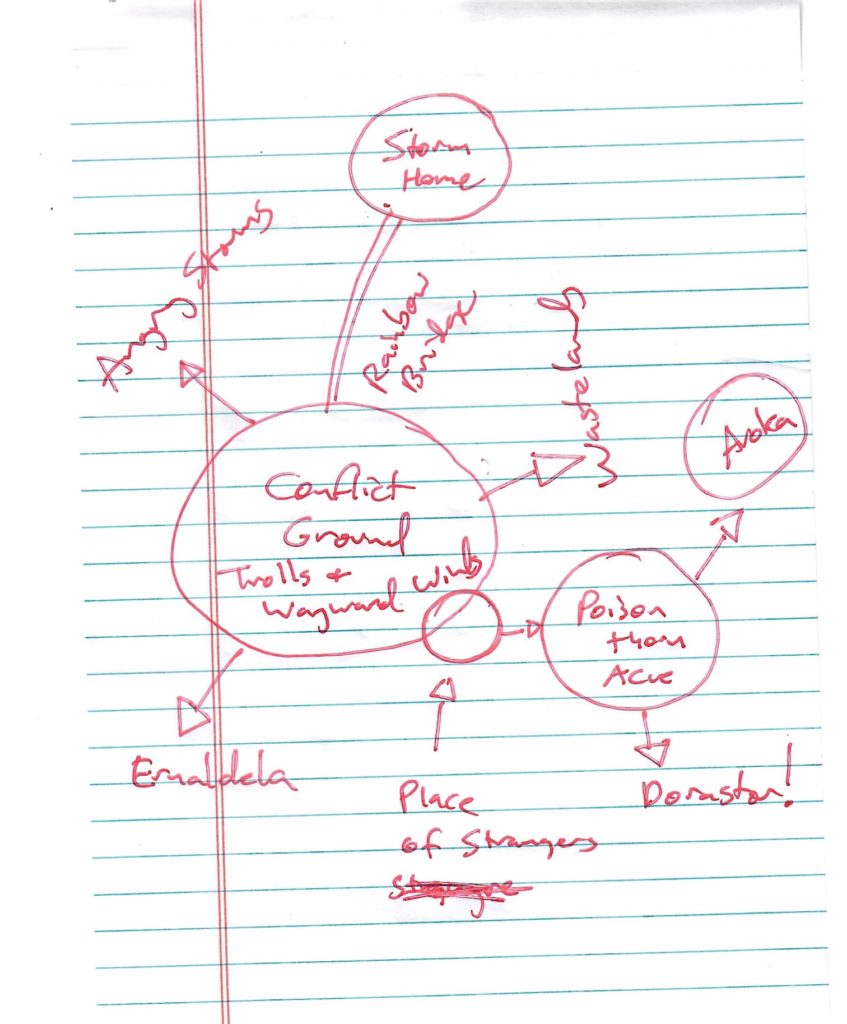Among the themes I am currently most fascinated with in RPGs is moving around through a setting’s “Collective Unconsciousness”. This is occupying a lot of my creative time and attention. But what the heck is that beyond some pretentious titles, you rightfully ask. Good question!
So in RuneQuest, this is heroquesting into the realm of myth. In RuneQuest, myth describes the eternally occuring events of the God Time – by that I mean that the God Time is not the past, present, or future, but something that is constantly there on the “other side.” The mythic event where the Sun was killed by Storm is always occuring, as is the mythic event where the Sun was returned to the heavens by the gods. This is the realm of archetypes and the source of stories – we might give some of these entities and stories names to better grasp them, maybe we call this Zeus and Cronus or Orlanth and Yelm to better ground ourselves, but the names can be deceptive. It is the archetype that we are dealing with – everything else is something we add to it.
In Pendragon, this is the Questing Period, as we run around the Enchanted Britain looking for the Holy Grail. Perhaps we chat with princesses boiling in a pot, entreat with the Faerie Queen, or find ourselves sentenced to the Hanging Tree. Again, these events/stories are disconnected from the Mundane World. We are interacting with the magical unconscious on the other side of Arthur’s Britain.
In Call of Cthulhu this is the Dreamlands, where dreamers have constructed a vast realm on the other side of consciousness. I always found the older editions didn’t do enough with the possibilities here.
RPG adventures into the unconscious are great fun (and can feel very primal and powerful regardless of system) but they pose hurdles on the GM and players. How do we interact with an archetype – it is both more powerful but also less powerful than us. Adolescent Jack can defeat the Giant, and the Wolf can devour Granny without killing her. How do we travel through the realm of archetypes – a voyage in the realm of myth or dream does not have the same sense of space as a horse journey through Late Antiquity Britain, Dragon Pass, or a train journey across Europe. Heck, how do we distinguish between the unconscious realm and the mundane? Endless dreaming is of course indistinguishable from death, and we want our characters to live! But I find this adventuring in the unconscious showing up in all of my games – even our explorations of Ringworld. Elements of it show up in many video games (and are often my favorite elements of the game – for example, they made Jade Empire great IMO, and why I still hold that to be BioWare’s most intriguing video game).

